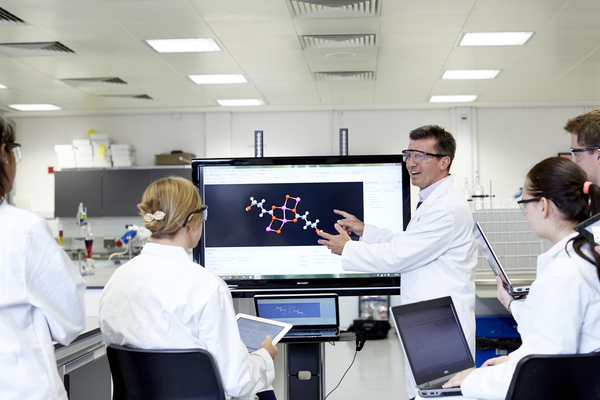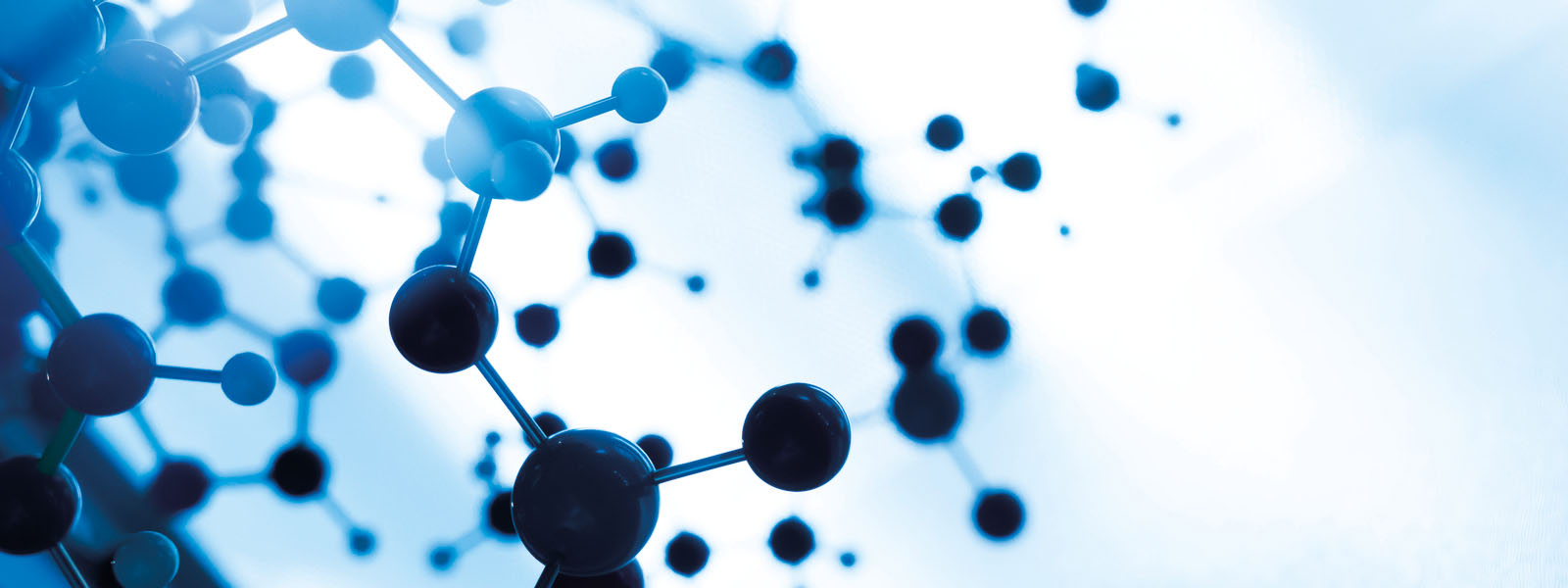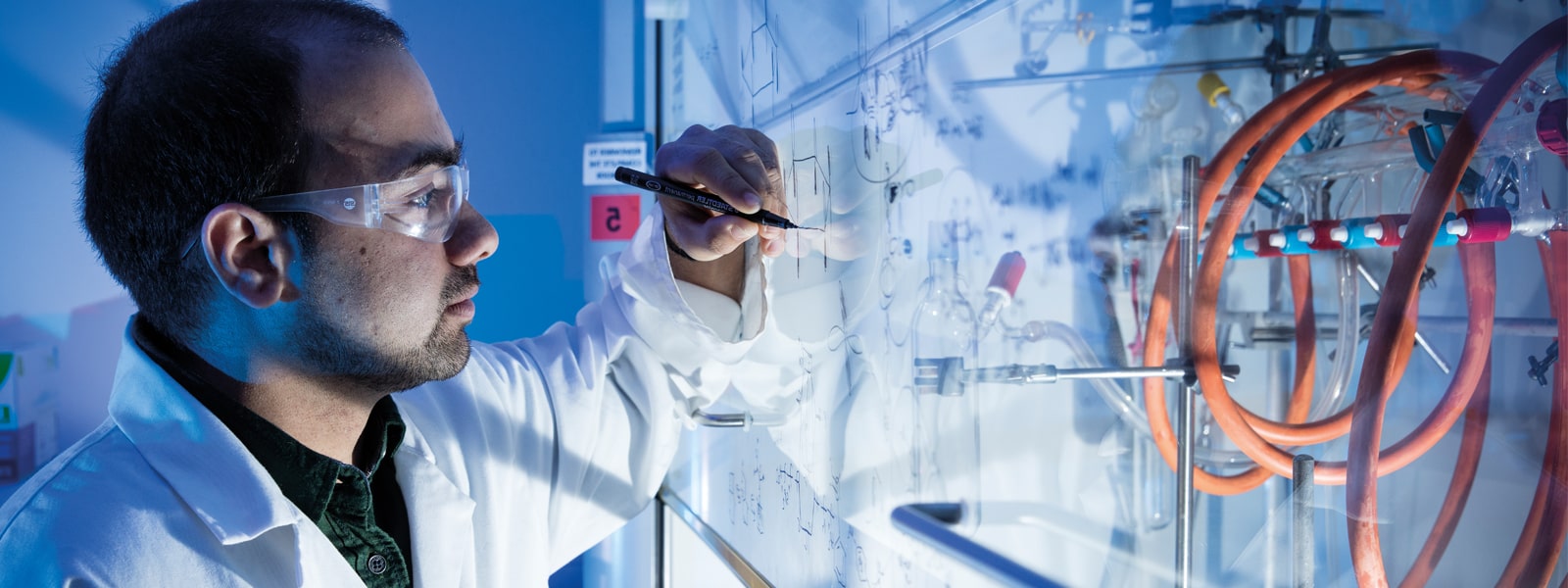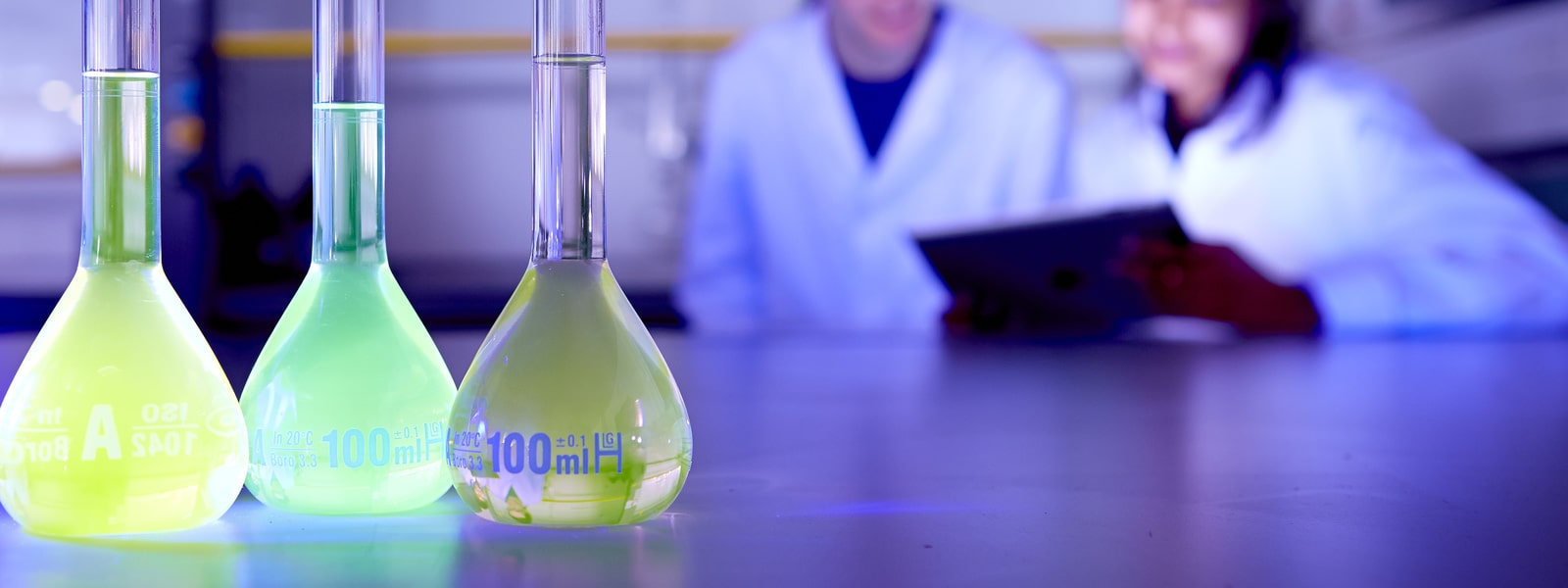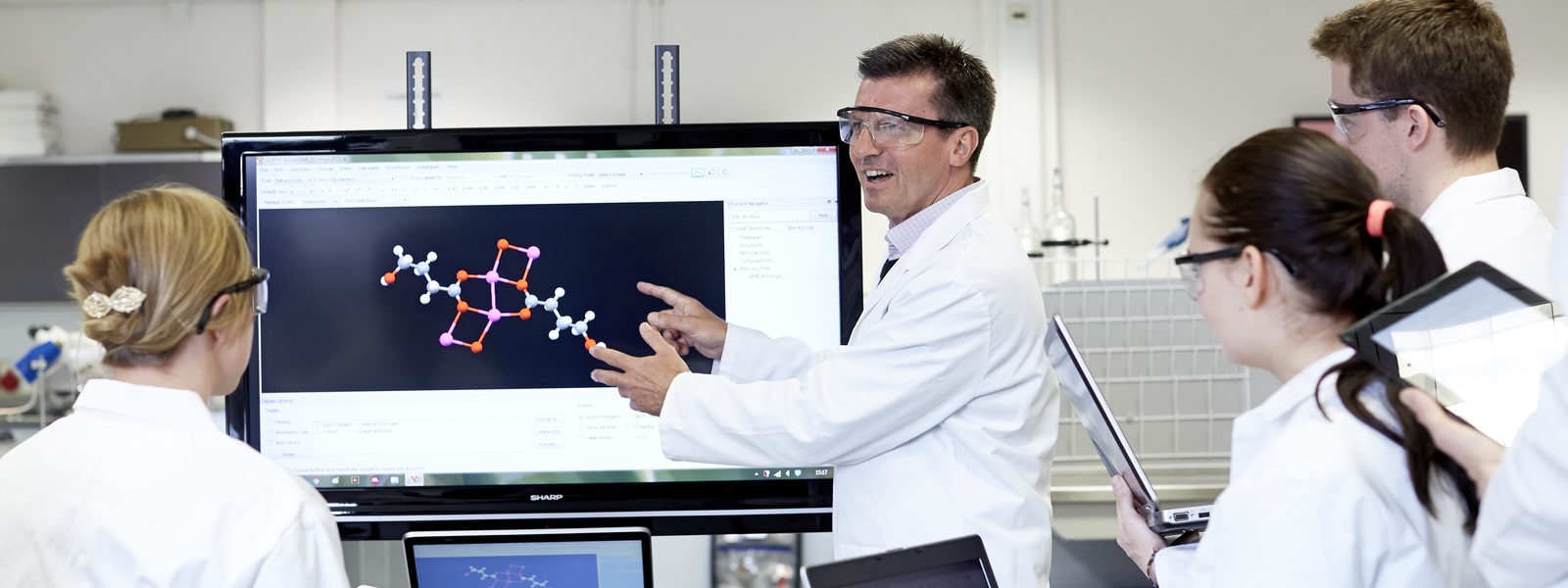Module Overview
This module focuses on the concepts of the derivative and the Riemann integral, which are indispensable in modern sciences.
Two approaches are used: both intuitive-geometric, and mathematically rigorous, based on the definition of continuous limits. Important results are the Mean Value Theorem, leading to the representation of some functions as power series (the Taylor series), and the Fundamental Theorem of Calculus which establishes the relationship between differentiation and integration. Further calculus tools are explored, such as the general properties of the derivative and the Riemann integral, as well as the techniques of integration. In this module, students may deal with many "popular" functions used throughout mathematics.
Module Overview
This module extends the theoretical approaches related to atomic and molecular structure to develop models to explain structure, reactivity and spectroscopy of systems. It aims to provide the underpinning knowledge to understand how structure and reactivity are applied to develop new compounds and materials that change the world around us.
Module Overview
This module aims to provide a breadth core understanding of the main chemical principles behind the chemistry of elements, systems in equilibrium and chemical reactivity, with special emphasis in basic organic reactions.
Students will have the opportunity to learn basic concepts about elements and their main periodic properties and how some of these elements can be combined to produce molecules. Organic molecules will be used as an example to explain reactivity and how chemical structure can condition molecular properties. Energy transfers are also studied to understand the key role they play in chemical and physical transformations and how systems in equilibrium are affected by these.
Module Overview
This module aims to introduce core chemistry concepts with an emphasis on chemical change. Movement and interaction of molecules and chemical kinetics are key physical chemistry topics covered and applied to chemical reactions of both organic and inorganic substances. The use of empirical data to develop and support laws, theories and models will be covered and how chemical kinetics can be used to develop reaction mechanisms. An introduction to crystallography and absorption spectroscopy is covered.
Module Overview
This module aims to introduce students to the chemistry laboratory environment. The purpose of the module is to provide students with a platform which can be built upon in subsequent practical modules and equalise their potentially pre-university laboratory experience.
Within this module students can learn a portfolio of skills and be evaluated via competency based assessments. The module also covers best practice in health and safety in the laboratory environment as part of the series of key core concepts delivered in the module.
Module Overview
This module aims to provide students with the practical experience associated with the topics delivered in Core Chemistry 1.1 and Core Chemistry 1.2.
The module will outline key organic, inorganic and physical chemistry concepts with a series of laboratory activities reinforced by the use of relevant analytical techniques and tools throughout a range of experiments.
Module Overview
This module begins with an introduction of a probability space, which models the possible outcomes of a random experiment. Basic concepts such as statistical independence and conditional probability are introduced, with various practical examples used as illustrations. Random variables are introduced, and certain well-known probability distributions are explored.
Further study includes discrete distributions, independence of random variables, mathematical expectation, random vectors, covariance and correlation, conditional distributions and the law of total expectation. The ideas developed for discrete distributions are applied to continuous distributions.
Probability theory is a basis of mathematical statistics, which has so many important applications in science, industry, government and commerce. Students will have the opportunity to gain a basic understanding of statistics and its tools. It is important that these tools are used correctly when, for example, the full picture of a problem (population) must be inferred from collected data (random sample).
